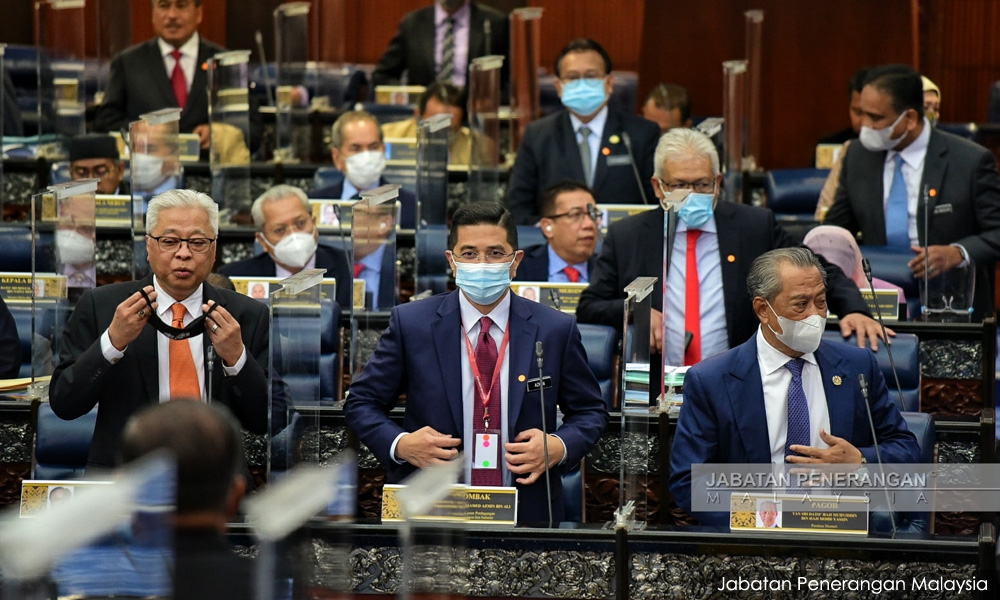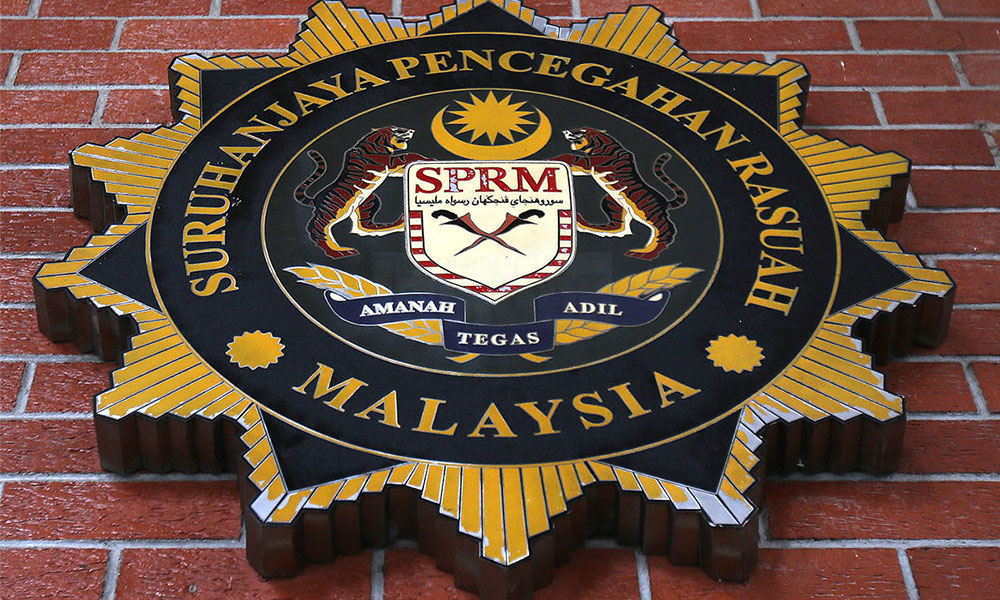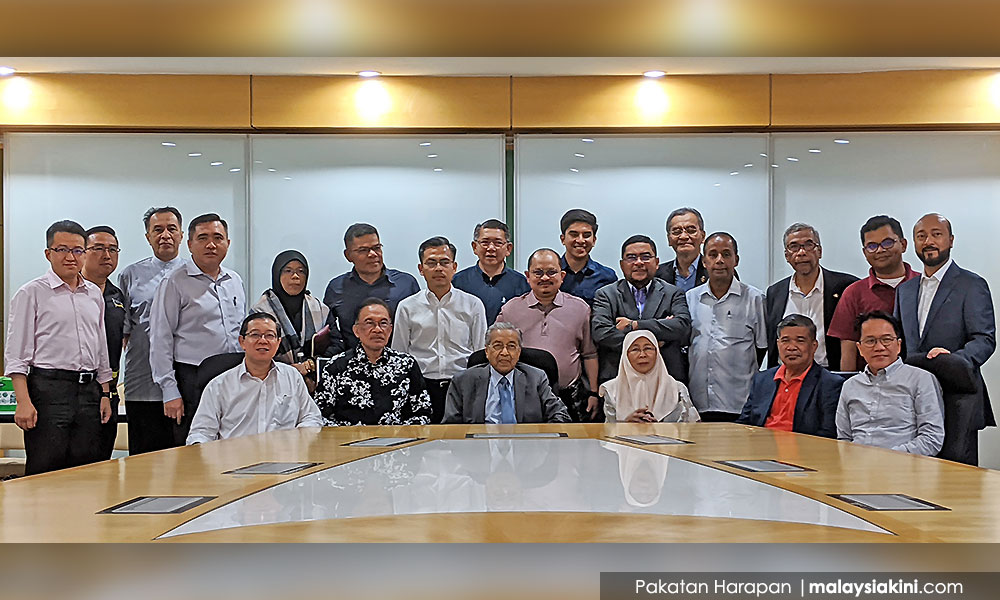MP SPEAKS | As we sadly marked the first anniversary of the first unelected government in history, we remember then calling Perikatan Nasional’s(PN) perfidious overthrow of a constitutionally elected Pakatan Harapan government, as a severe setback for democracy and reforms.
Such prophetic words have been proven true with the decision of Prime Minister Muhyiddin Yassin to suspend Parliament following a declaration of a state of emergency, ostensibly to battle the Covid-19 pandemic.
Malaysia is probably the only country in the world that believes that the act of suspending Parliament can overcome Covid-19.
The Yang di-Pertuan Agong has dismissed such rationale with a landmark statement saying that Parliament can reconvene during the emergency period which lasts until August.
Muhyiddin had attempted to justify the emergency powers as necessary to allow the government to impose stiffer penalties against those who violate the Covid-19 SOPs.
Since this objective has already been achieved, following the exorbitant increase in fines of RM1,000 to RM 10,000 for individuals and RM50,000 for companies, why is there still a need to maintain an emergency and suspension of Parliament?
And yet four days after the royal decree that the emergency does not include the suspension of Parliament, there is an ominous silence from the government and inertia from the Parliament speaker Azhar Harun about convening parliamentary meeting swiftly.
Suspension of Parliament has not prevented Malaysia, in per capita terms, from being the worst performing Asean country with a total of 298,315 Covid-19 cases and 1,121 deaths as at Feb 27, 2021.

Ministers fail to lead by example when they openly flout the SOPS without punishment or apply double standards with harsher penalties for the ordinary rakyat. Schools are allowed to reopen but not Parliament. Such failure of leadership and crisis management is the principal reason why Malaysia is the worst in Asean in battling Covud-19.
Over the last one year, Malaysia’s state of the nation measured by any political economic social or institutional metric deteriorated alarmingly. The overall GDP growth for 2020, contracted by 5.6 percent, far more than the government’s Budget 2021 estimate of -4.5 percent. Unemployment in 2020 rose to 4.5 percent, the worst since 1993, with December figure at 4.8 percent despite the burst of consumption at year-end.
The national mean poverty line income for households in Malaysia was revised from RM980 to RM2,208 per month in 2019. Using the new methodology, Malaysia’s absolute poverty rate improved from 7.61 percent in 2016 to 5.6 percent in 2019. However, with the poor handling and mismanagement of the economic crisis, these numbers are expected to increase.
The people need help and a bold economic stimulus package of an additional RM45 billion is required, on top of the RM15 billion announced earlier this year. At a minimum, the loan moratorium should be extended automatically and unconditionally, reduce the burden of fixed costs like rent and utilities with subsidies, extend loan credits and grants. We are still awaiting Muhyiddin’s promised increase of monthly welfare aid to RM1,000, which should be extended to the unemployed.
Whilst this unelected government has engendered a public health crisis with the mismanagement of the Covid-19 pandemic, there is a complete lack of focus on handling the ensuing economic crisis, unemployment crisis and an education crisis. Against this backdrop and little noticed is the widespread rise in corruption, amidst the encouraging progress made by the Pakatan Harapan government in curbing corruption.
Muhyiddin had made fighting corruption as one of his key commitments in his government. However, reality does not support his rhetoric. In the 2020 Transparency International Corruption Perception Index(CPI) Report, Malaysia dropped six rungs to 57th position, compared to No 62 in 2017, 61 in 2018 and 51 in 2019.

Clearly, the lack of emphasis towards open tenders and transparency, appointment of politicians to replace professionals in government-linked corporations (GLCs) in exchange for political support, withdrawal of criminal charges against political leaders favouring the PN government, using government positions to buy political support as well as selective investigation and prosecution of politicians were identified as primary causes. It will not be surprising if Malaysia’s CPI rankings further declines this year.
Under the PN government, the Malaysian Anti-Corruption Commission(MACC) has ceased to be an impartial, independent and professional organisation battling corruption at the highest levels. MACC was oblivious to the drop in Malaysian rankings in the Transparency International CPI and indifferent to concerns that it has been weaponised as a political tool to serve the PN government.
Among some of its glaring lapses involving abuses of power were:
- Muhyiddin was recorded on audio allegedly offering political posts and positions in GLCs in exchange for political support. Gua Musang MP Tengku Razaleigh Hamzah revealed that he rejected an offer to be Petronas chairperson because it was unconstitutional;
- Women, Family and Community Development Minister Rina Harun’s dubious ability to settle a bankruptcy suit for debts amounting to RM1.3 million, when she had declared assets of RM72,000 as at Nov 20, 2019 with a monthly income of RM34,000.
- Former Sabah chief minister Shafie Apdal’s exposé that the leader of the previous Sabah government had awarded 700,000 acres of forest reserve land under Yayasan Sabah or Sabah Foundation to "friends and family".
Parliament Public Accounts Committee had asked for MACC to act after exposing former Transport Minister Liow Tiong Lai granting a RM149.5 million contract by direct award to a company partly owned (25 percent) by Deputy Minister of Plantation Industries and Commodity Wee Jeck Seng. Will MACC continue its role of inaction and inertia?

The dropping of corruption charges against key political personalities and their associates has also damaged PN’s commitment towards transparency and accountability. Credit Suisse Malaysia’s managing director and the head of equities Stephen Hagger had warned that Malaysia will suffer if corrupt political leaders and figures continue to walk free from corruption charges due to the prosecution unilaterally dropping charges despite iron-clad evidence.
No such warnings were issued by financial analysts when Harapan was in power. Lest we forget, poor governance was cited as one of the principal causes of Malaysia’s sovereign credit ratings downgrade by Fitch Ratings last year. Harapan did not suffer any sovereign credit ratings downgrade despite grappling with the mammoth 1MDB financial scandal.
With the prolonged economic recession, loss of jobs and business closures as well as school shutdowns brought about by the PN’s mismanagement of the Covid-19 pandemic, Malaysia is not just living dangerously, but failing dangerously.
Political instability has only worsened Malaysia’s state of crisis, following the loss of Muhyiddin’s parliamentary majority. Suspension of Parliament will not end but only perpetuate the crisis. As a political circuit-breaker, DAP would like to suggest that Parliament be restored and all political parties commit to delaying general election until the global pandemic is over.
Whether or not that is tantamount to requiring elections to be held only until the end of the current term in 2023 or include the possibility that the current government be replaced by another government that can command majority support, running a government competently for the sake of the rakyat should be the utmost priority. Malaysia cannot afford to continue to be failing dangerously.
LIM GUAN ENG is the MP for Bagan and son of DAP veteran Lim Kit Siang. - Mkini
The views expressed here are those of the author/contributor and do not necessarily represent the views of MMKtT.

No comments:
Post a Comment
Note: Only a member of this blog may post a comment.